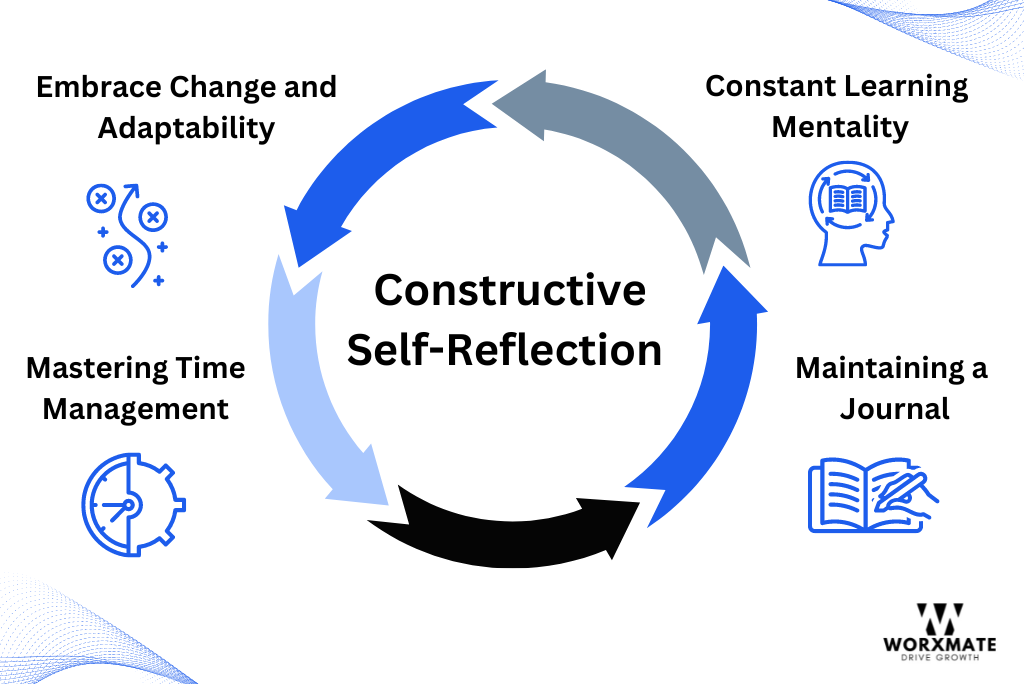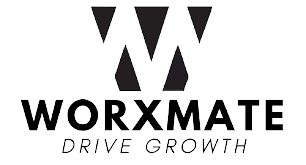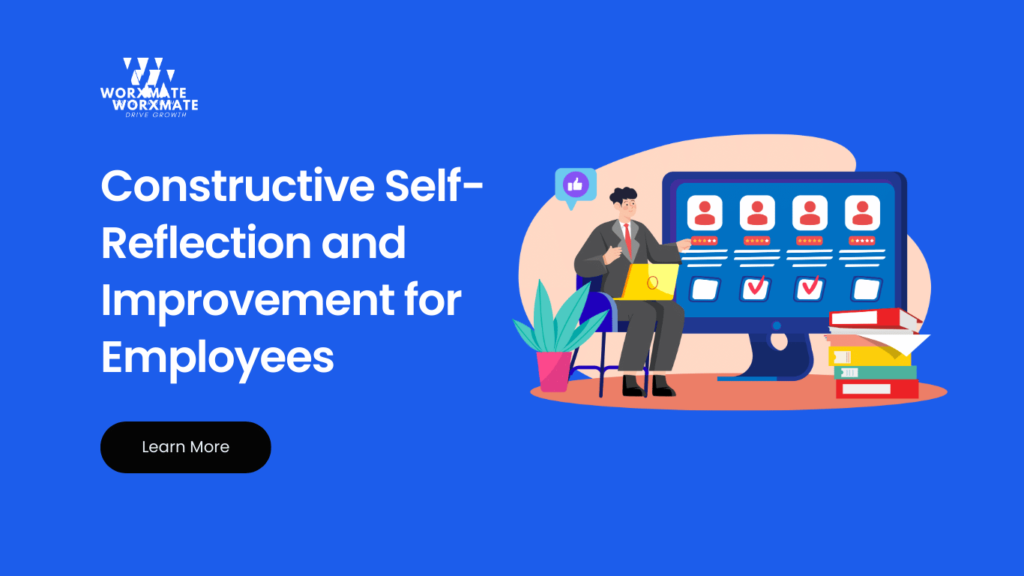Success is not constant it is always in a flow of highs and lows and employees needs constant self-improvement. It is very crucial for employees to have this sense of self evaluating themselves, understand their areas of growth and take up measures that will improve their work, job satisfaction and career development.
This blog will discuss the importance of self-reflection and provide useful tips for continuous professional growth
The Power of Self-Reflection
Self- reflection is a superpower for workers that helps employees to think of their strengths and weaknesses, plan out their actions and have an exciting engagement at work.
Employees can plan out their strategies for improvement, set their objectives and behaviour patterns based on their analysis of their achievements, mistakes and areas of growth. Self- reflection is a guiding map for the employees that develops their problem-solving skills.
It functions as an inbuilt system of lifelong learning and development, providing an environment at work where people are always improving. According to Forbes, 59% of workers claim they’ve had no workplace training, and their skills were self-taught.
Here are some key benefits of self-reflection: –
- Improved self-awareness and emotional intelligence
- Enhanced problem-solving and decision-making skills
- Greater accountability and ownership of personal growth
- Increased resilience and adaptability in the face of challenges
- Enhanced job satisfaction and fulfillment
🚀 Empower your team with structured self-reflection! Align goals, track progress, and drive continuous growth. 👉 Book a Free OKR Demo and see how Worxmate transforms employee development.
Practical Strategies for Constructive Self-Reflection and Improvement

-
Constant Learning Mentality:
Learning regularly is crucial for personal and professional growth. Updating yourself with the current industry trends, news and guidelines as the market is constantly changing.
Getting in touch with the industry leaders through workshops, seminars and webinars gives a lot of knowledge about the industry. Analysing other company’s strategies and success stories is also very educational.
Continuous professional development and ongoing education are necessary for success. If you want to enhance your abilities, consider enrolling in a structured educational program, obtaining relevant certifications, or exploring opportunities for online learning.
By honing new skills or refining existing ones, you can advance your career and establish yourself as a specialist in your field.
-
Maintaining a Journal:
Keeping a journal at your job can really help you to gain more knowledge, efficiency, and effectiveness. It’s a great way to organize your thoughts, reflect on your experiences, and come up with fresh ideas and solutions.
Setting goals, tracking progress, and avoiding distractions can all lead to better conflict resolution. Plus, learning from both your successes and failures can make you a better decision-maker, help you handle your tasks more effectively, and support your professional growth.
Incorporating journaling into your daily routine can help you better understand your work experiences, leverage insights for personal growth, and ultimately achieve success in your career goals.
-
Seeking Feedback:
Ask your peers, colleagues, mentors, and supervisors for feedback regularly. Constructive feedback can give you helpful advice on what you do well and where you can improve. Be open to feedback and see it as an opportunity to grow and develop.
-
Mastering Time Management
Time is constantly passing by and managing it efficiently is a task that is highly valued. To improve your efficiency and achieve organizational goals, it is important to prioritize your tasks, set goals that are achievable, and utilize tools such as calendars and task management systems.
Setting priorities is crucial for effective time management. Breaking down tasks into smaller components and setting reminders can assist in staying on track, especially during moments of feeling overwhelmed.
Additionally, establishing clear weekly or daily objectives, like sending a specific email or drafting a blog post, can aid in maintaining focus and making strides towards accomplishing important tasks.
-
Embrace Change and Adaptability
In today’s time, the ability to adapt is highly valued. Accepting change and gain the ability to handle tough situations. It is advantageous for both you and your team, as well as your organization, to have this flexibility.
A successful business must be incredibly versatile. Employees should be willing to adjust their roles, responsibilities, and problem-solving approaches. Adaptability involves gaining new skills and techniques that builds your capacity to tackle unfamiliar situations and obstacles.
By honing these skills, you can accept change head-on instead of resisting or disregarding it. By taking this approach, you can overcome obstacles faster instead of passively waiting for them to resolve themselves, minimizing unnecessary delays in decision-making.
Objectives and Key Results (OKRs):
OKRs are important for helping employees evaluate themselves within companies. By connecting personal goals with overall company objectives, OKRs offer a clear way for employees to review their work, development, and where they need to improve.
Conclusion
Reflecting on your own actions and thoughts is crucial for personal and career growth. By implementing these useful tips into your daily routine, you can improve your self-awareness, establish important objectives, and make positive changes for ongoing progress.
Embrace the process of learning more about yourself and evolving, and witness as you unleash your complete abilities in both your job and personal life.
Unlock the power of constructive self-reflection with Worxmate, the ultimate OKR Tracking Software. Drive employee development, track progress, and foster growth.



